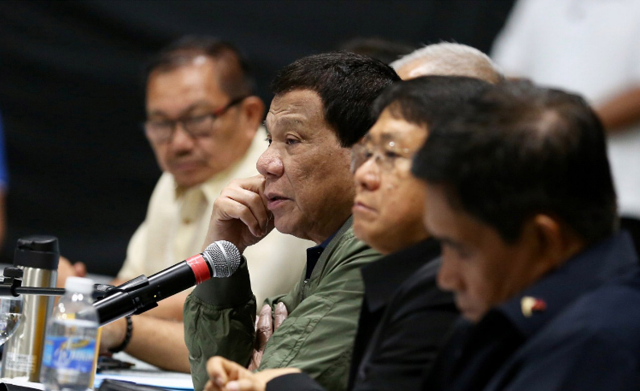Hasty Reporting of the “Narco” List

EXPRESSING HIS “trust in the government agencies who (sic) have vetted and validated the narco-list,” President Rodrigo Duterte read the list of politicians who were alleged to be involved in the illegal drug trade. He made this announcement during the National Peace and Order Council Meeting in Davao City on March 14.
Earlier, several organizations had already assailed the president’s intent to make public a “narco-list.” The Commission on Human Rights (CHR) warned that it would only fuel mudslinging and election violence. Media organizations, including CMFR, issued a statement on March 7, urging media practitioners to “exercise utter prudence and fastidious judgment in evaluating this ‘story.’” (See Statement: Gov’t Can’t Play Fast, Loose with Due Process and Rule of Law)
Media reported that the list had been evaluated and validated by the Interagency Committee on Anti-Illegal Drugs (ICAD).
But media, particularly print, closely followed the president’s lead and published the list, quoting parts of the president’s speech.
Several Manila broadsheets, namely Philippine Daily Inquirer, The Philippine Star, Manila Standard, The Manila Times and their respective online sites except for PhilStar.com named the 46 officials in their reports the following day, March 15. The Daily Tribune named only some of those in the list in its banner story.
The late night newscasts (ABS-CBN 2’s Bandila, GMA-7’s Saksi, TV5’s The Big Story and CNN Philippines’ Newsroom) on March 14 reported what the president said but left out the names.
CMFR monitored reports by primetime newscasts (ABS-CBN 2’s TV Patrol, GMA-7’s 24 Oras, TV5’s Aksyon and CNN Philippines’ News Night) and leading broadsheets (Inquirer, Star and Bulletin) from March 15 to 21.
Raps Filed, but…
Media reported the president saying the Department of Interior and Local Government (DILG) had filed charges against these local politicians before the Office of the Ombudsman. But follow up stories revealed that the investigation was not comprehensive.
During a press briefing the following day, March 15, the PNP said that it had insufficient evidence to file criminal charges. PNP Spokesperson Col. Bernard Banac was quoted in reports as saying: “We won’t stop gathering information. When we have strong evidence, we will not hesitate to immediately file criminal complaints.” Banac said that the testimonies and information on the alleged involvement of politicians involved in illegal drugs are only enough to warrant probable cause for administrative charges.
Meanwhile, Justice Secretary Menardo Guevarra said the Department of Justice would conduct its own investigations as soon as they receive the intelligence reports from DILG and the Philippine Drug Enforcement Agency (PDEA). Later, in a March 18 report of The Star, he was quoted as saying “Should these charges go to preliminary investigation, we assure all respondents of a fair and impartial hearing.”
Hasty
Absent preliminary investigation, the politicians named by the president are widely assumed to be involved in the illegal drug trade. In publishing the names, media was irresponsible, as these followed the say-so of the president without checking with other sources, a step required by journalistic verification.
While erring officials should be exposed, the media should still exercise restraint in reporting highly defamatory information without checking and validating the basis of the accusation and charge, as everyone has a right to the presumption of innocence until evidence can build up the case to prove guilt.
Furthermore, in the current climate, such exposure can endanger these individuals as well as their families. The publicity has already damaged their reputation and good name. It has also made them vulnerable to violent attacks.
Some of these politicians may be brought to court. But the exposure of their names may make holding a fair trial impossible as the president has already made known his wishes and the judiciary is not inclined to question him.
Leave a Reply